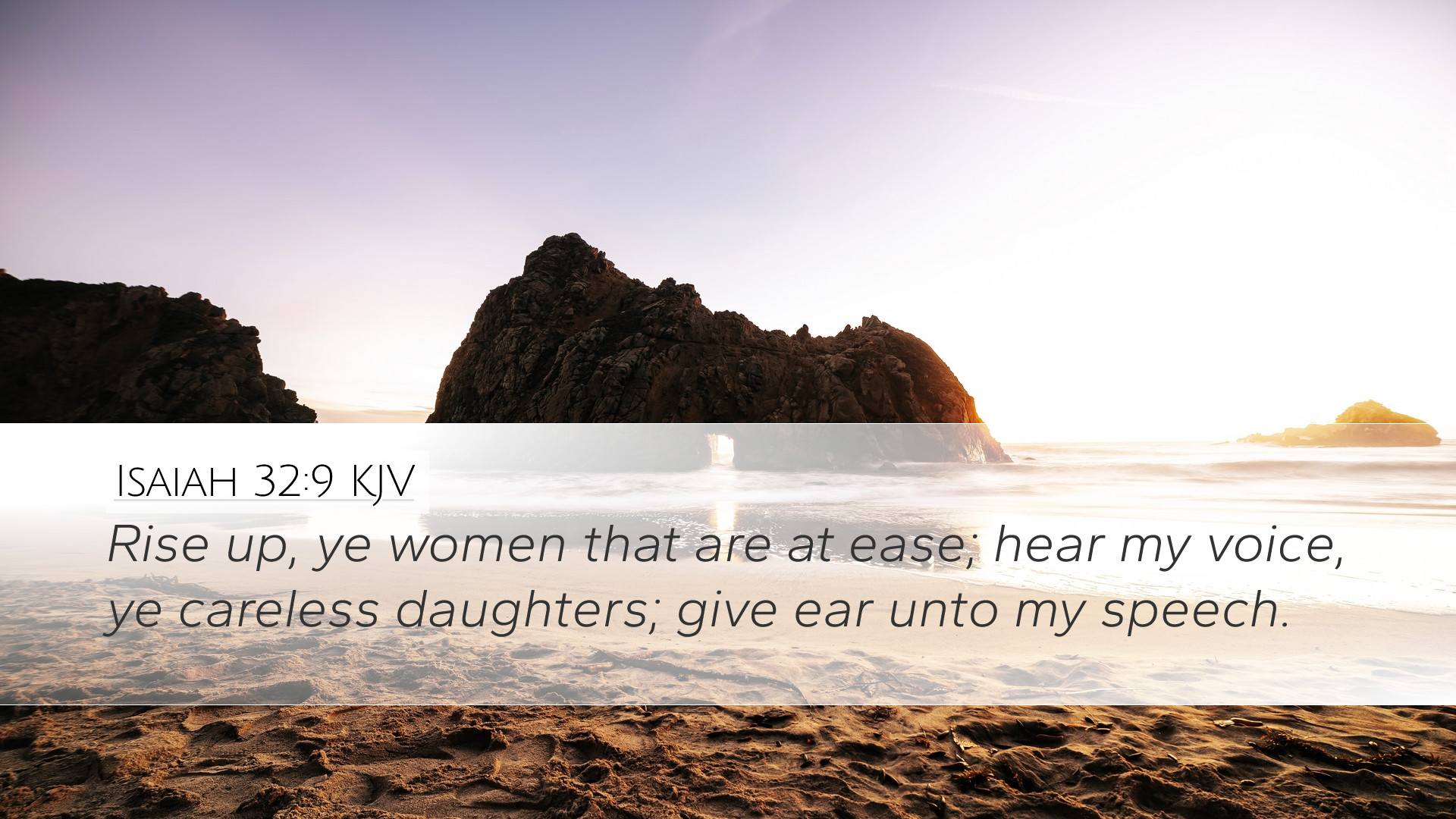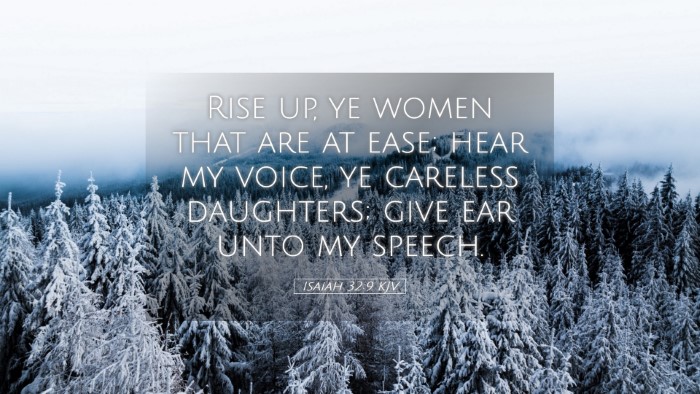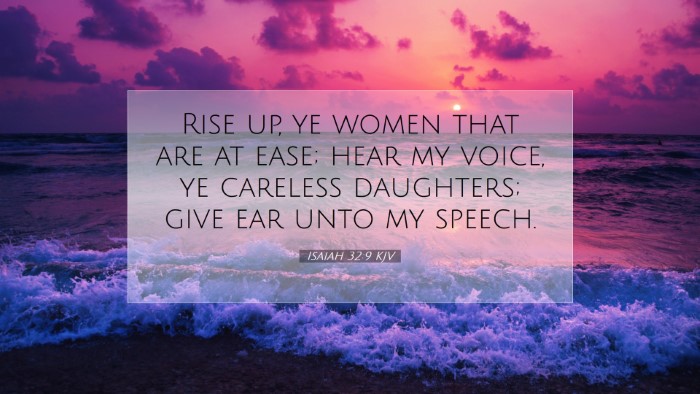Commentary on Isaiah 32:9
Isaiah 32:9 states: "Rise up, you women who are at ease, hear my voice; you complacent daughters, give ear to my speech." This verse is part of a larger prophetic discourse wherein the Lord, through Isaiah, addresses the state of society, particularly targeting those who are complacent and comfortable.
Contextual Background
The Book of Isaiah provides a critical understanding of the socio-political and spiritual conditions of Judah during the 8th century B.C. This chapter occurs in a section where the prophet conveys a message of both judgment and hope. Understanding the historical context is crucial for a deeper appreciation of this verse.
Key Themes
- Complacency: Isaiah challenges the complacency that has settled among the people, particularly women who represent societal stability. The call to "rise up" signifies a need to awaken from spiritual slumber.
- Judgment: The call to action serves as a precursor to the impending judgment that will come upon the nation for their waywardness and lack of repentance.
- Hope and Restoration: While the judgment is certain, the overarching theme of Isaiah encompasses the hope for restoration and the coming of a righteous king who would redeem Israel.
Insights from Matthew Henry
Matthew Henry emphasizes the contrast between the disquieting message of judgment and the tranquility of those who are complacent. He highlights that the "women" addressed represent a larger metaphor for the people of Judah who enjoyed peace at a time of impending turmoil. He writes, “They are called to rise and give heed to the prophecy of doom which is upon them.” Henry calls attention to the spiritual condition of these women, suggesting that their ease is a spiritual hindrance that blinds them to the realities of their circumstances.
Insights from Albert Barnes
Albert Barnes provides an analysis focused on the significance of the term "women who are at ease." He points out that this phrase reflects moral and spiritual inactivity that stems from worldly comfort. He notes, “The assurance of peace often leads to moral lethargy, and an untroubled state of society can lead to apathy concerning divine judgments.” He interprets the call as a divine warning to all, not just women, linking it to a broader thematic element of accountability before God.
Insights from Adam Clarke
Adam Clarke discusses the societal implications of complacency as presented in Isaiah 32:9. He articulates that the ease of the daughters signifies a detachment from the realities of sin. Clarke posits, “These women are figurative for a nation that has let its guard down spiritually, leading to a neglect of their duties to God.” He also makes a compelling argument that complacency can often be a precursor to calamity, urging the people to heed the warning before it is too late.
Practical Applications
The profound message of Isaiah 32:9 remains relevant for contemporary audiences, particularly for leaders, theologians, and scholars. Here are several key applications:
- A Call to Vigilance: The verse serves as a reminder for individuals and communities to remain spiritually alert and responsive to God's voice amidst a culture of comfort and distraction.
- Awareness of Judgment: Pastors and teachers can use this passage to emphasize the reality of divine judgment and the need for repentance, stressing that spiritual complacency can obscure one's awareness of impending consequences.
- Encouraging Righteous Living: The call for women to "give ear" can be expanded to encourage all believers to actively seek God's guidance and to live according to His will, rather than succumbing to societal norms that promote ease at the expense of righteousness.
- Hope in Restoration: The themes of hope and restoration found within Isaiah encourage believers to not just dwell on judgment but to foster an understanding of God's redemptive purposes even amidst correction.
Conclusion
Isaiah 32:9 is a poignant reminder of the dangers of complacency and the importance of heeding God's warnings. The collective insights from public domain commentaries shed light on the spiritual challenges that arise in times of peace. For pastors, students, and scholars, this verse calls for a deeper commitment to God, urging vigilance in a world that often promotes ease over earnestness. As one engages with this scripture, the call to rise and listen is as relevant today as it was in the days of Isaiah.


